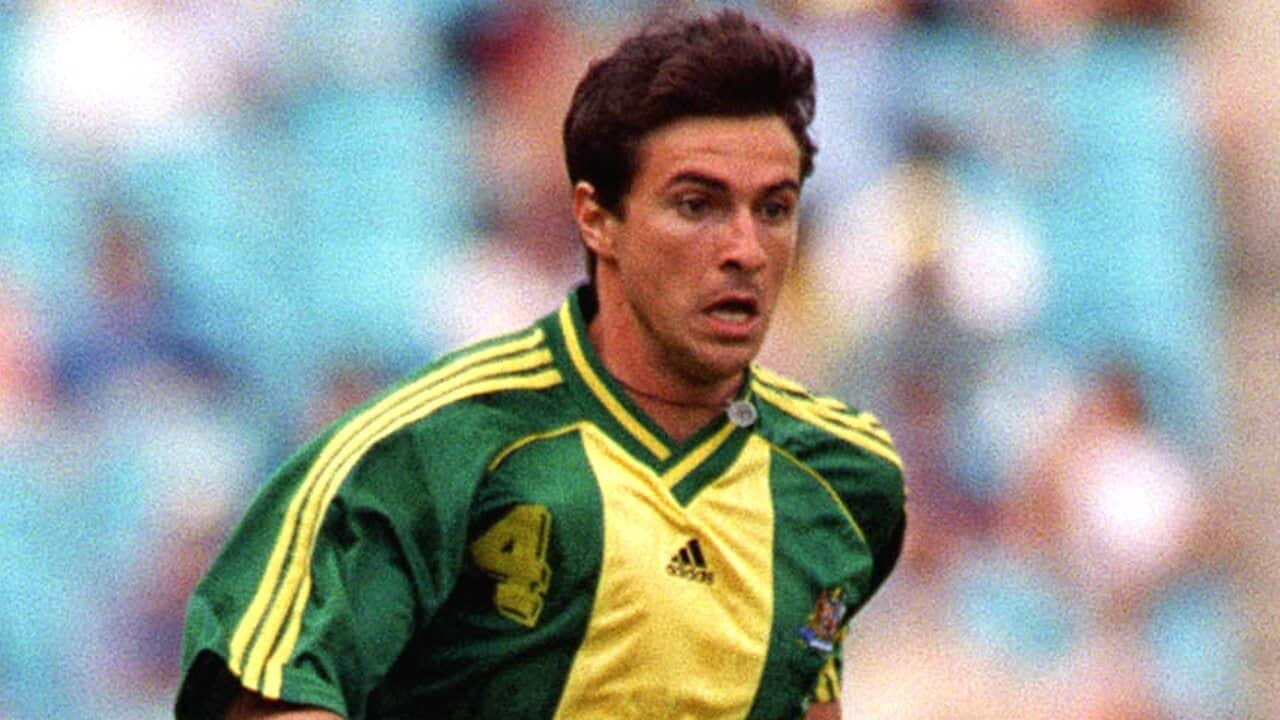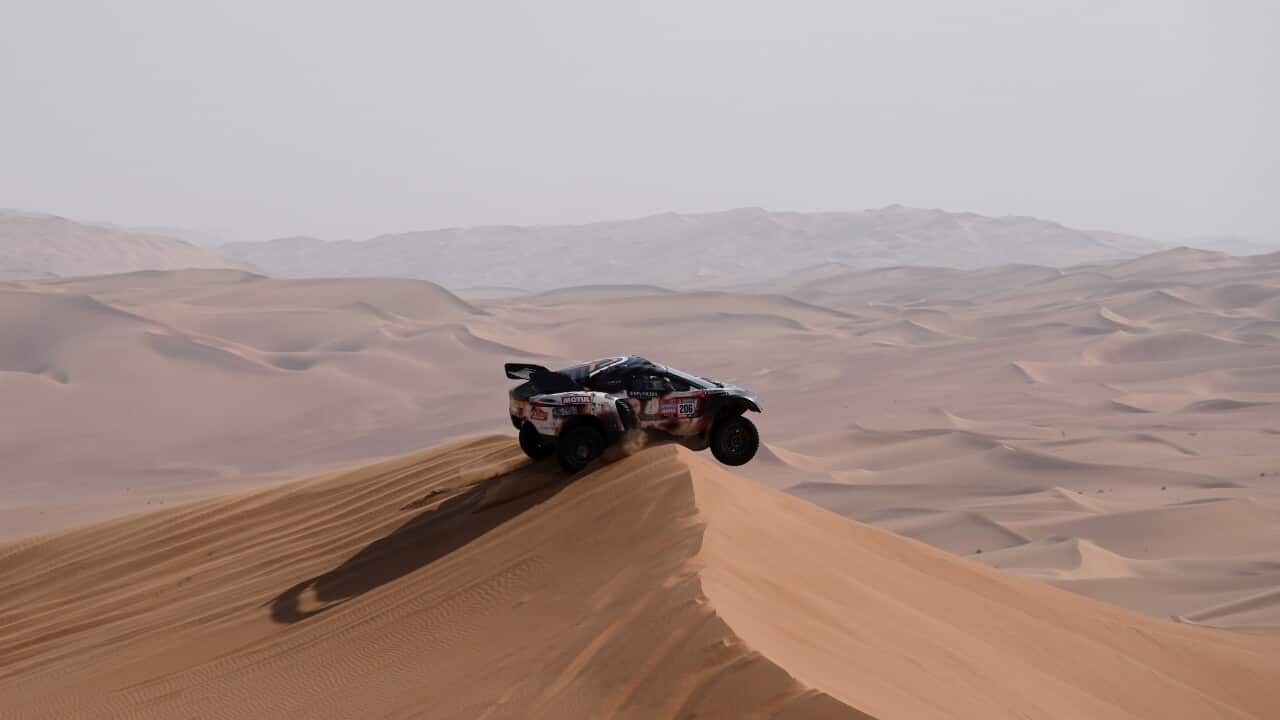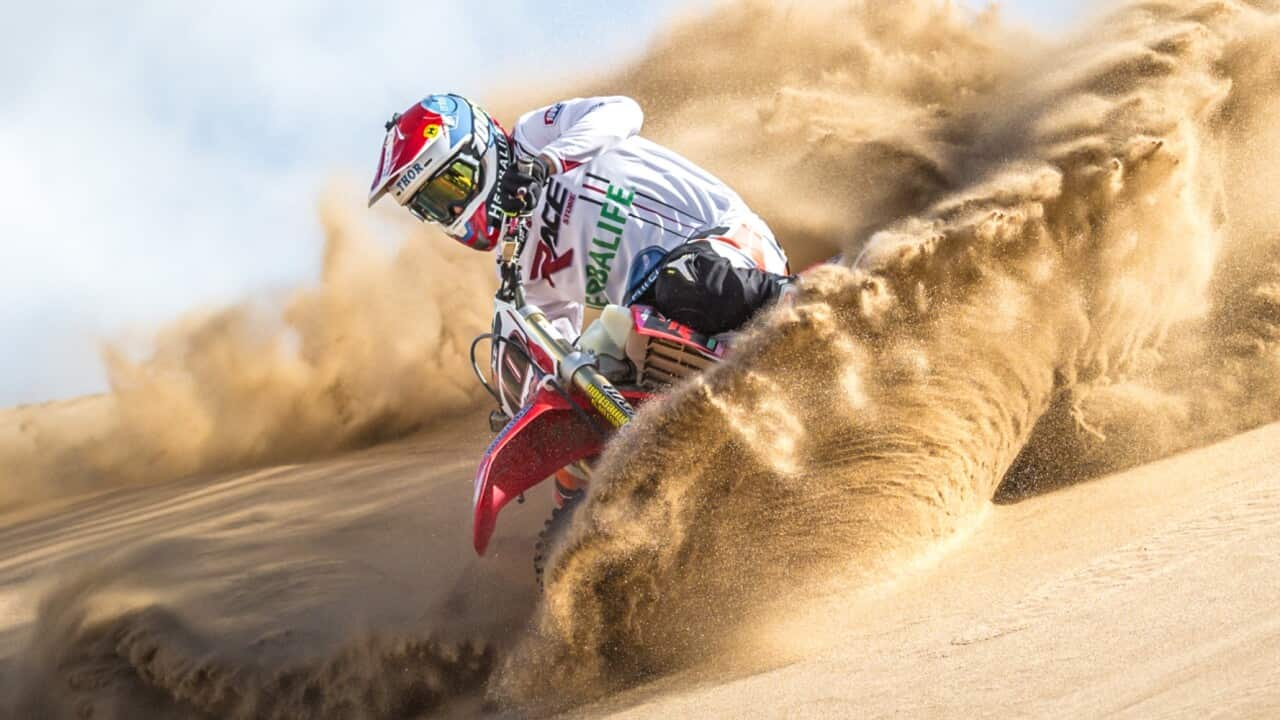Socceroos striker Max Tolson says he has no regrets about not kicking a ball in anger at the 1974 World Cup after playing a key role in the team's qualification for the finals.
Tolson, who is now 73, was one of Australia's finest forwards in the 1970s but a broken toe suffered during a kick-about days before the start of the event prevented him from realising his dream.
He could only look on from the stands as his teammates fought bravely against the odds in their first ever participation in a World Cup.
"I split my toe in half just before the start of the tournament while we were playing a mini game indoors to kill the time. It was always raining," Tolson said.
"I hit this metal heater on the wall and that was it. I knew straight away it was the end for me. I was fit and I'm sure I would have got a few minutes here and there but it was not to be. Watching the boys play from the stands was very frustrating.
"The World Cup was not too good for me. A month before we left Australia I had the mumps. I was getting better but during a meeting at our team hotel in Wahroonga in Sydney the team doctor ruled that I should not travel to Germany.
"Rale Rasic insisted I should go. He argued I would be fully recovered by the time the competition started and I had a role to play. He also said that if somebody else replaced me at the last minute he would have gone there basically on a holiday. He got his way and I was on the plane."
Tolson, who made his name for the Socceroos as an impact player, said he was happy to live in fellow striker Adrian Alston's shadow and was realistic enough to recognise his limitations.
"Noddy was a great player and it was obvious he should be ahead of me," Tolson said.
"I always wanted to play, always, but I was never disappointed when I didn't because I knew my limitations.
"When I was at South Coast United it was all about me, ha ha, and my photo was in the paper every day but when Noddy joined us the media was besotted by this tall, handsome, long-haired striker who was incredibly skilful and scored lots of goals. It was all about him from then on and, mind you, he deserved it. We still joke about it even now."
Although he only played in 16 full internationals, Tolson's contribution to the team that reached the 1974 finals was crucial and will always be remembered, especially by his teammates.
"Max did not play many games but was one of our most important players," Alston said.
"Today's younger generation would not know much about him but ask any player from that period and he'll tell you that he was a very good player. I would have him in my team any time."
Goalkeeper Jim Fraser, who played in most of the '74 qualifiers, remembers him as a dangerous forward who "made good runs off the ball, took a couple of defenders with him and created space for others".
Tolson, who lives on the southern shores of Lake Macquarie, was as surprised as he was happy to oblige when approached for an interview.
What are you doing now?
"I'm recovering from a bad car accident from two years ago. My friend fell asleep on the wheel near Narrabri and we left the road at 100 kph. We both broke the same vertebrae but thankfully I'm on the mend and after a long period of rehab and being bored shitless I'm walking again. Talking to Rale and friends all the time is what kept me going."
You were 18 when you won the NSW championship with South Coast United. What do you remember from the 4-0 rout of APIA Leichhardt in the grand final?
"It was awesome. I had had played a handful of games in first grade and on the Tuesday before the grand final player/coach Jimmy Kelly came up to me and told me I was playing in the grand final. I was just a kid and used to playing reserve grade, rushing into the dressing rooms and getting changed so I could watch the big boys play. Now I was going to be one of them. The match was a blur. Nobody expected us to beat APIA, let along thrash them."
The match drew 30,000 at the Sydney Sports Ground so it must have been quite an occasion.
"It was huge. I think there were 30 buses from Wollongong alone. I was very noisy and you could hardly hear Kelly speak to us during the match."
You also played for two seasons in the English third division with Workington. What did you gain from that experience?
"Kelly made it happen because he had contacts in England. My first game was played on ice because there was no heating at the ground. I did not even have the right boots on and I could not even feel my feet. I scored the winning goal with a header with five minutes to go. The local paper said I had a good game but I was terrible to be honest. I suppose I was there to score goals and that is what it was all about.
"I enjoyed the experience even though I was used as a centre-forward which I did not like. I preferred to play in midfield, which is where I played under Kelly in the grand final against APIA. I was very young and immature at that stage and you just did what you were told to do and played where your coach wanted you to play."
You scored on your international debut against Israel in 1971. Do you remember the goal that helped the Socceroos to a 2-2 draw?
"Absolutely. You'd have to be crazy not to remember your first goal for your country. My father was in the stands and when I was stripping off in the dressing room Rale threw this green and gold jersey at me and just stared at me. It was a stare I will never forget. I did not know what he meant ... it could have been a warning but it gave me a strong emotion.
"The goal came when Jimmy Rooney chipped the ball over their defence and I hit the bar with a shot but the ball came back to me and I put it away with a half-volley. When I saw the ball hit the net I just took off and thought to myself 'my father would be happy with that'."
Rasic and many of your teammates say that your finest game for Australia was in Tehran when you came on for Alston in the second half and helped the Socceroos survive a torrid affair with Iran, who won 2-0 on the night but the Socceroos went through 3-0 on aggregate. That was an epic match, wasn't it?
"I was seen as an impact player. I was on the bench next to Rale in the first half and I can tell you if you are on the bench you would not want to sit beside him. I could tell he was very cranky with the way things were going (two goals down after half an hour) but he was a smart guy and in control all the time. He would not let his emotions get the better of him like some coaches do today so as not to alarm the players. Yet he had a 'how are we getting out of this' look on his face and I tell you he was burning inside.
"At the end of the first half he grabbed me forcefully by my hair and told me 'warm up'. I was just as cranky as he was mainly because we were playing well below our usual level. I went out there with a deep anger, chased every ball and made the Iranian defenders aware of my presence in the attack. Maybe this helped steady the ship and we survived and got through."
You also took part in the first leg of the final decider against Korea Republic. That history-making tie must have been the pinnacle of your career, right?
"I would have to say 'yes' in hindsight. Maybe at the time I did not fully appreciate what the World Cup really meant and it was not until we actually got to Germany that I realised it. At the time I also did not know that I would not play for Australia again."
That 1974 squad was full of interesting characters from different backgrounds and cultures. What made them such a strong collective unit?
"Rale played a big part in forming a strong bond between us. We all clicked because we had achieved so much together. We all had different jobs - I was a butcher - and we played against each other every week in Australia so we knew each other well. We all worked as a team to achieve a common goal. We had many meetings - Rale was obsessed with meetings - and those get-togethers also brought us closer together."
Who were the guys you got on with the best?
"This is a hard question, probably a bit unfair. I was close with Peter Wilson and Alston, who is the godfather to my son."
Do you follow today's football? What do you make of the Socceroos and the A-League?
"I don't go to matches but I occasionally watch the A-League on television. Football has changed a lot and you cannot compare teams from different eras so I'm not going to say we were better or worse. I actually enjoy the A-League. What pisses me off is Football Federation Australia and the way they go about things. Look at the Socceroos' performance in the Asian Cup: that was embarrassing."
Who were the best players you played with and against?
"Fellow Socceroos Alston, Wilson and Manfred Schaefer were among my best teammates while two of my toughest opponents were midfielder John Watkiss and defender Alan Marnock, who both played for Hakoah."
MAX TOLSON FACTFILE
Club career
1963-1965: South Coast United
1965-1967: Workington
1967-1971: South Coast United
1972-1973: Marconi
1974: Safeway United
1975: Sydney Croatia
International career
1971-1973: Australia (16 matches)











